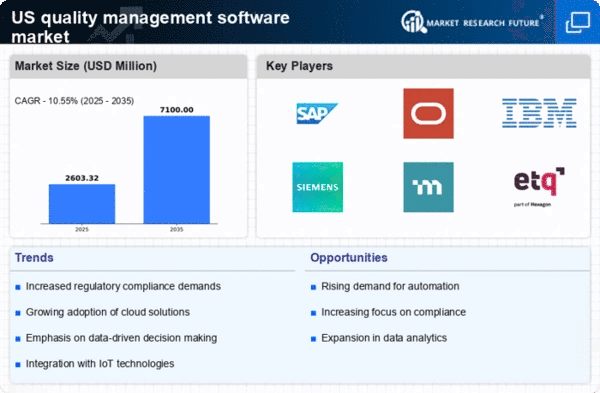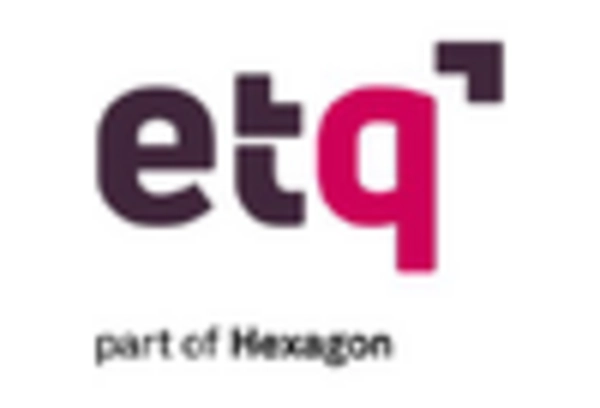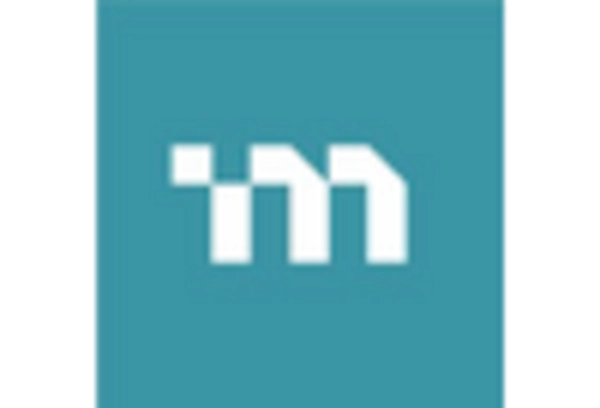Rising Demand for Quality Assurance
The increasing emphasis on quality assurance across various industries is a primary driver for the quality management-software market. Organizations are recognizing that maintaining high-quality standards is essential for customer satisfaction and retention. In the US, the market for quality management software is projected to grow at a CAGR of approximately 10% from 2025 to 2030. This growth is fueled by the need for businesses to streamline their quality processes, reduce defects, and enhance overall operational efficiency. As companies strive to meet customer expectations and regulatory requirements, the demand for robust quality management solutions is likely to rise, thereby propelling the market forward.
Growing Importance of Customer Feedback
The growing importance of customer feedback is influencing the quality management-software market significantly. Organizations are recognizing that understanding customer needs and preferences is vital for product development and quality improvement. In the US, companies that leverage quality management software to analyze customer feedback report a 25% increase in customer satisfaction. This trend highlights the need for integrated solutions that can capture, analyze, and act on customer insights. As businesses aim to enhance their offerings based on customer feedback, the demand for quality management software is expected to rise, further driving market growth.
Increased Focus on Operational Efficiency
The pursuit of operational efficiency is a significant driver for the quality management-software market. Companies are increasingly adopting quality management solutions to optimize their processes, reduce waste, and enhance productivity. In the US, organizations that implement quality management software report an average improvement of 20% in operational efficiency. This focus on efficiency not only helps in cost reduction but also contributes to better resource management and faster time-to-market for products. As businesses continue to seek ways to improve their operations, the demand for quality management software is expected to grow.
Regulatory Compliance and Risk Management
Regulatory compliance remains a critical concern for many industries, driving the demand for quality management software. Organizations are required to adhere to various standards and regulations, which necessitates the implementation of effective quality management systems. In the US, the The quality management software market is likely to see a surge in demand. This demand arises as companies strive to meet compliance requirements, particularly in sectors such as pharmaceuticals and manufacturing. The ability to document processes, track compliance, and manage risks effectively is becoming increasingly important, thereby propelling the growth of the quality management-software market.
Technological Advancements in Software Solutions
Technological advancements play a crucial role in shaping the quality management-software market. Innovations such as machine learning, data analytics, and real-time monitoring are enhancing the capabilities of quality management systems. These technologies enable organizations to identify quality issues proactively and implement corrective actions swiftly. In the US, the integration of advanced analytics into quality management software is expected to increase by 15% over the next few years. This trend indicates a shift towards more intelligent and responsive quality management solutions, which can adapt to changing business needs and improve overall product quality.
















